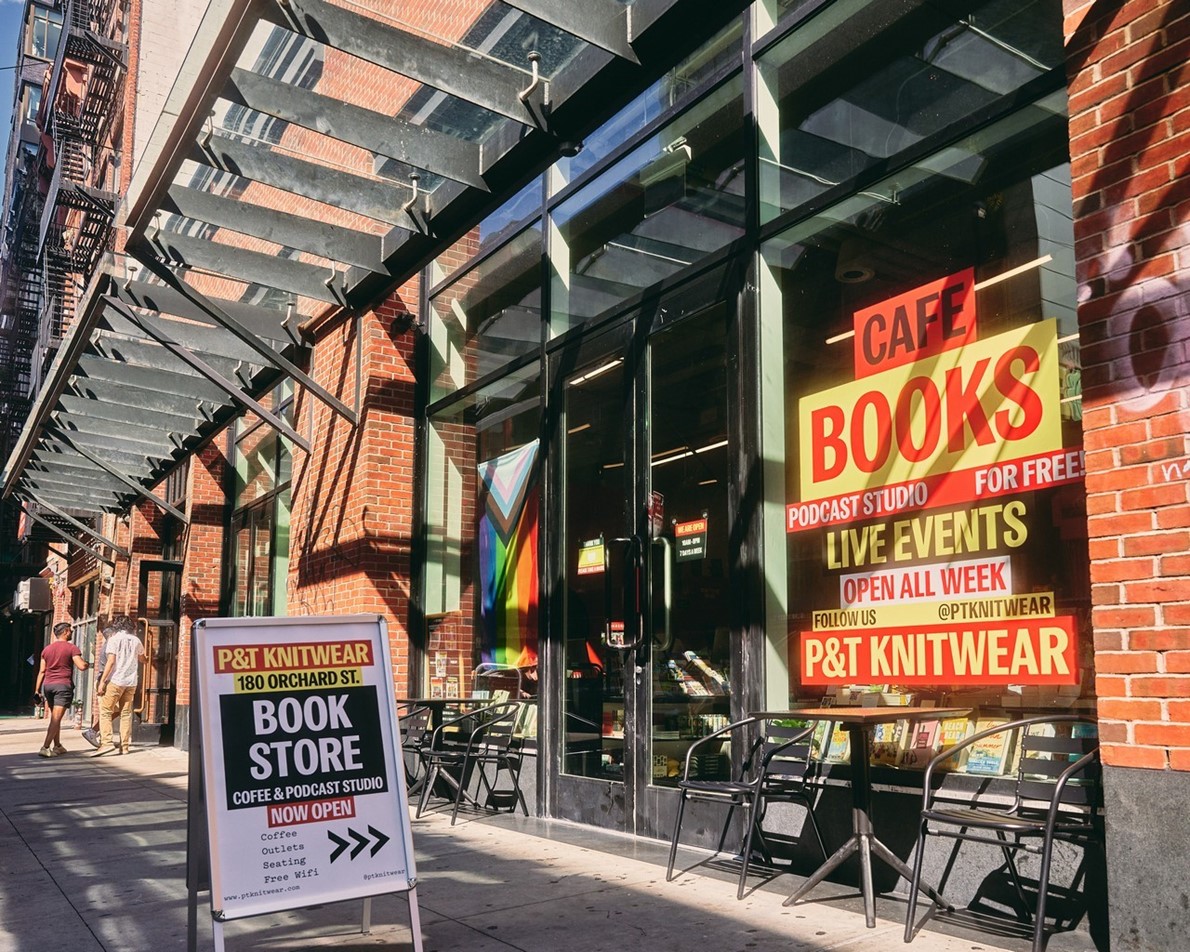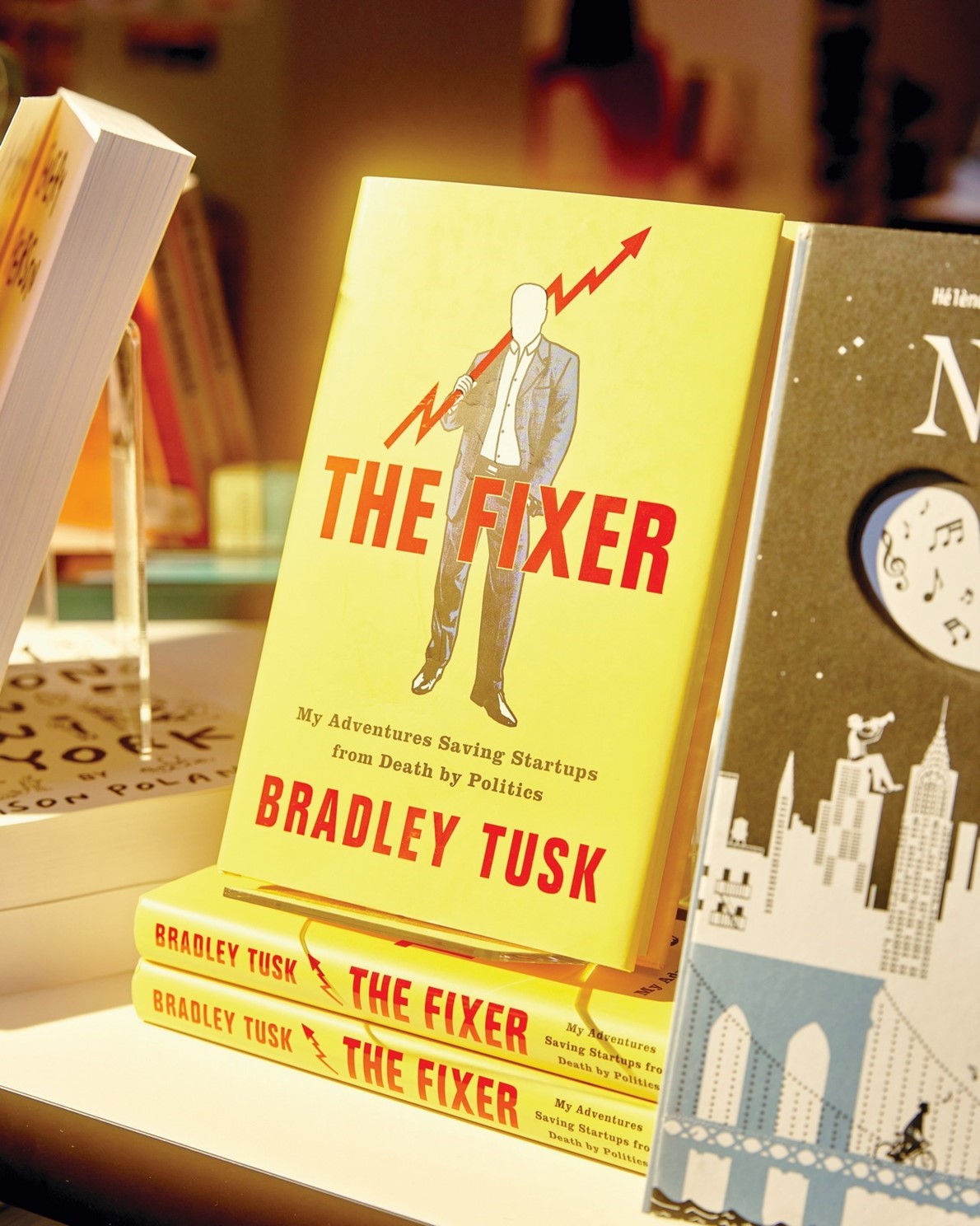Sitting at the bar in the exclusive Delta Club at Citi Field, where his beloved
New York Mets were in the process of sweeping the New York Yankees in the
Subway Series, the political fixer and venture capitalist Bradley Tusk
described his designs on the future.
اضافة اعلان
He talked up his $10 million philanthropic campaign
to build a system that would allow all Americans to vote on their phones; so
far, the campaign has funded pilot programs in seven states. He enthused over
an investment proposal from a Native American tribe to transform its South
Carolina reservation into the “Delaware of web3”. He pointed out a massive blue
billboard in the outfield advertising the blockchain firm Tezos, one of many
financial technology companies he advises.
But his latest project is set firmly in the present
and relies on very old technology. Tusk, 48, has opened a brick-and-mortar
bookstore — one that he is marketing as family-owned and independent, a shift
away from his longstanding identity as one of New York City’s premier corporate
fixers.
The 278sq.m. space offers 10,000 books and a cafe,
as well as a podcast studio and an 80-seat amphitheater for readings and book
releases. Upcoming readings feature the kind of writers you would see on any
indie bookstore’s events calendar, like debut novelist Mecca Jamilah Sullivan
and poet Topaz Winters. At one recent talk, novelists Kevin Nguyen and YZ Chin
answered uncanny questions from the GPT-3 artificial intelligence program (“Who
are your influences?”) projected on a screen above their heads, to the
amusement of a youngish crowd with an array of literary tote bags.
But the store also recently hosted a book party to
celebrate a new memoir by Lis Smith, the political strategist who managed Pete
Buttigieg’s presidential campaign and who dated former Gov. Eliot Spitzer of
New York in his post-scandal years. The crowd included CNN host Brian Stelter;
political and corporate publicists Risa Heller and Stu Loeser; and Matthew
Hiltzik, another communications fixer whose clients have included the likes of
Hillary Rodham Clinton, Glenn Beck, and Johnny Depp.

The political crowd was a more familiar one than the
literary crowd for Tusk, who spent his formative years clawing his way up the
pecking order of Democratic politics. Along the way, he developed high-level
government connections and a nuanced feel for the levers of urban power, which
served him well when he transitioned to working as a consultant and lobbyist
for private companies battling regulators.
In college, Tusk interned for Mayor Ed Rendell of
Philadelphia and went on to work for Sen. Chuck Schumer of New York. He also
served as the deputy governor for Gov. Rod Blagojevich of Illinois, who was
later disgraced, until 2006. After a stint at Lehman Bros., shortly before it
imploded, he was tapped to run Michael Bloomberg’s campaign for a third term
for New York City mayor in 2009. He became an influential adviser to Bloomberg
after his victory; the mayor, in turn, became a mentor to Tusk. In 2010, soon
after the campaign, he started his own public relations and lobbying firm, Tusk
Strategies. “We’re expensive. We’re intense,” its website reads.
The Bloomberg administration was synonymous with
“corporate power”, said Michael Krasner, a former professor of political
science at Queens College and the co-director of the Taft Institute for
Government and Civic Education. The mayor’s pro-development policies, including
tax breaks for large businesses, profoundly changed the character of the city.
Critics have long accused the Bloomberg administration — which presided over
120 rezonings and the construction of more than 40,000 buildings — of ushering
in an era of extreme inequality, when huge glass towers went up and New York
transformed into a soulless “Potemkin village of what the city used to be”, as
historian Jeremiah Moss argues in his book “Vanishing New York”. Between 2000
and 2010, the number of bookstores in Manhattan reportedly declined from 204 to
135.
The bookstore, which opened in May, is the
culmination of what Tusk describes as a lifelong love affair with the written
word. Books offered Tusk “sanctuary,” he said, from bullies during his
middle-class upbringing on Long Island and in Sheepshead Bay in New York. He
majored in creative writing at the University of Pennsylvania before pursuing
politics.

“My thought was, I was a good enough writer to make
a living writing sitcoms, that was kind of my talent,” he said. (Tusk has never
written for a sitcom.) “I’m never going to win a National Book Award. I would
never win the Nobel Prize. I would never write a bestseller.”
Over the last decade, he has returned to writing,
penning regular columns in business publications like Inc. and Fast Company. He
also published a memoir in 2018 titled “The Fixer: My Adventures Saving
Startups From Death by Politics.” It has sold 3,921 copies, according to
Nielsen BookScan, though that number might soon tick up: On a recent visit to
the shop, the book was prominently featured in the New York City section, its
bright yellow cover facing outward.
The title of the book is a reference to Tusk’s time
working for Uber founder Travis Kalanick, who hired Tusk for counsel in 2010 as
his startup battled local governments and taxi companies, including in New
York. Tusk lobbied on Uber’s behalf for the next five years and helped the company
steamroll regulation efforts by Mayor Bill de Blasio and the City Council,
enlisting drivers and riders to pressure the city. At one point, the Uber app
even added a mocking “de Blasio mode” button, which changed the estimated wait
time for a ride to 25 minutes and encouraged riders to “Say ‘NO’ to de Blasio’s
Uber.”

Tusk’s dalliance with New York’s literary scene
began during the early days of the pandemic in 2020, when he and Howard Wolfson
— a friend and another former Bloomberg consigliere — started the Gotham Book
Prize, which awards $50,000 annually to the author of a book about the city.
The first winner was the novel “Deacon King Kong” by James McBride in 2021,
followed by New York Times reporter Andrea Elliott’s nonfiction book “Invisible
Child: Poverty, Survival and Hope in an American City” this year.
Tusk characterized the store as a “microcosm” of one
of his favorite policy proposals: universal basic income, which he has
advocated at length, especially through Yang’s mayoral campaign. P&T Knitwear
offers higher wages than other bookstores do, he said, and provides workers
with the same extensive health benefits given to employees at his venture fund.
“I’ve had all this
luck,” Tusk said. “That’s sort of the back story behind the store.” He described
a chain of good fortune, stretching from his family surviving the Holocaust and
moving to America all the way to his decision to accept payment from Uber in
equity rather than cash. The store is just one facet of a broad program of
charitable works, he said, including pushing bills nationwide that mandate
school breakfast programs and funding a soup kitchen on 16th Street. “This is
just one person doing whatever feels right to me,” he said, “but this is how
I’m going about it.”
Read more Books
Jordan News




